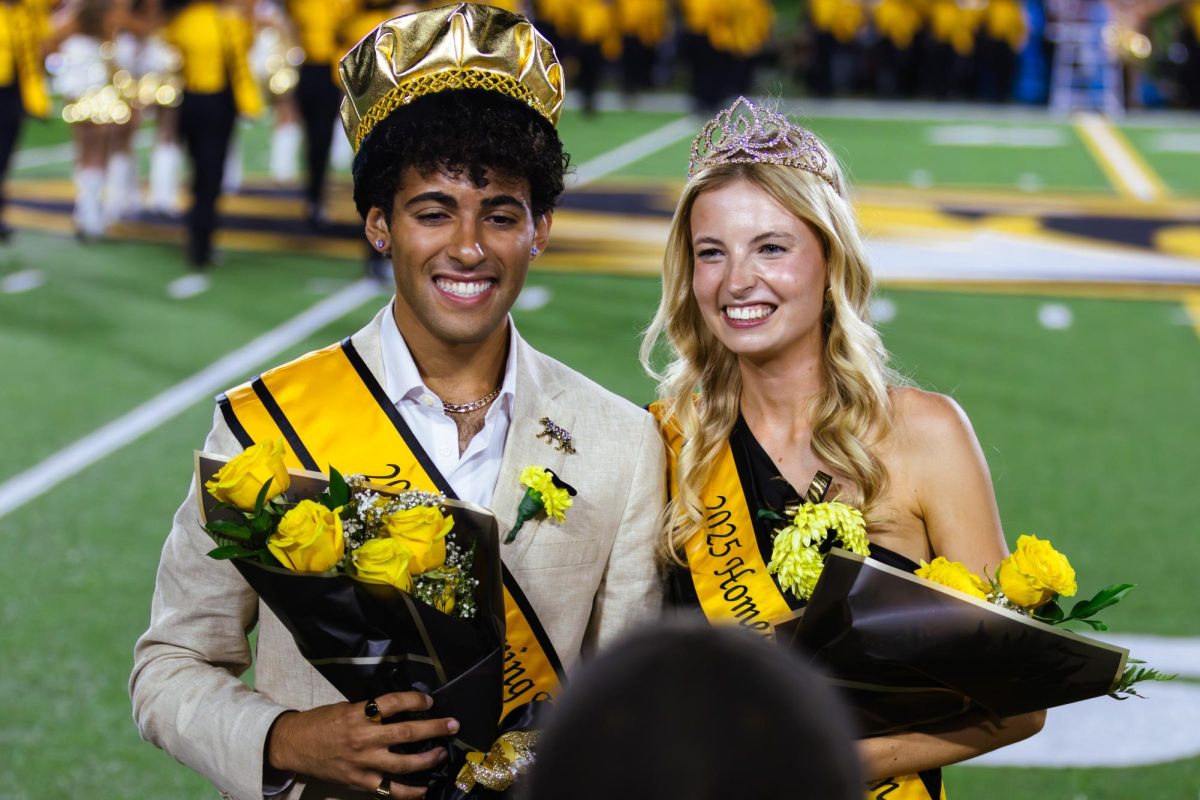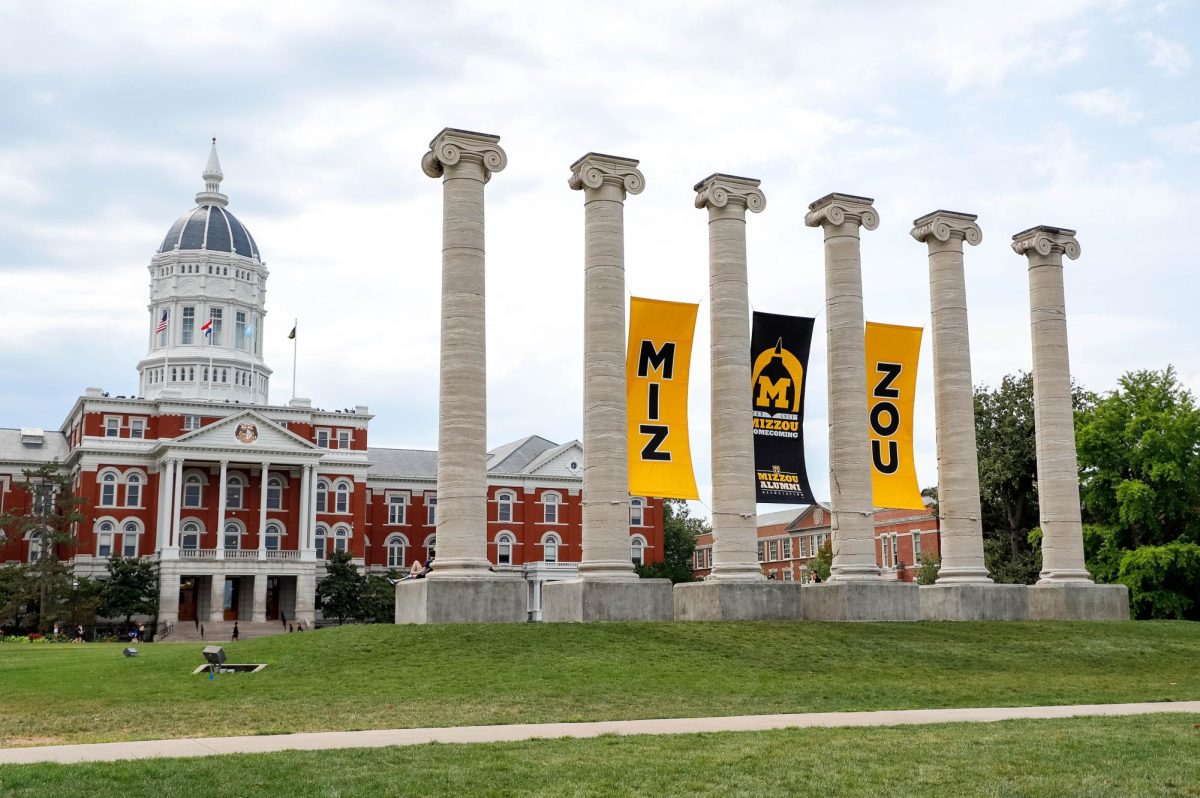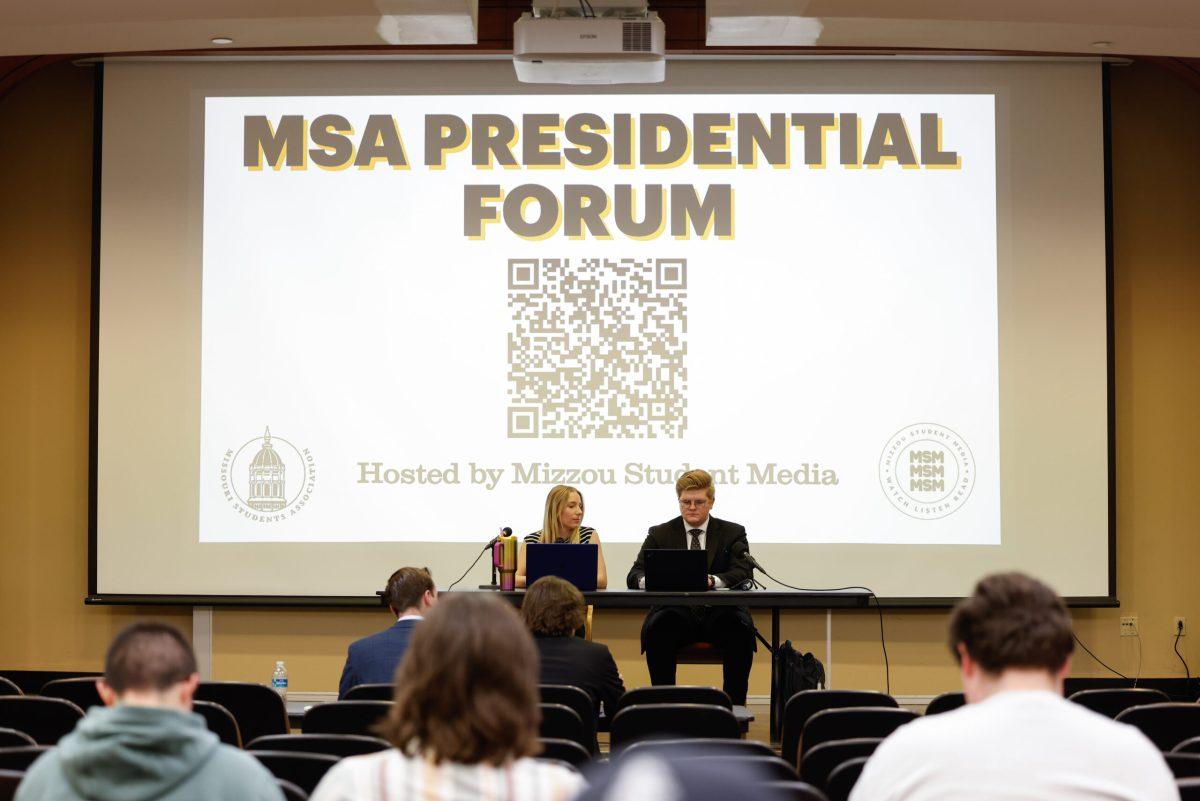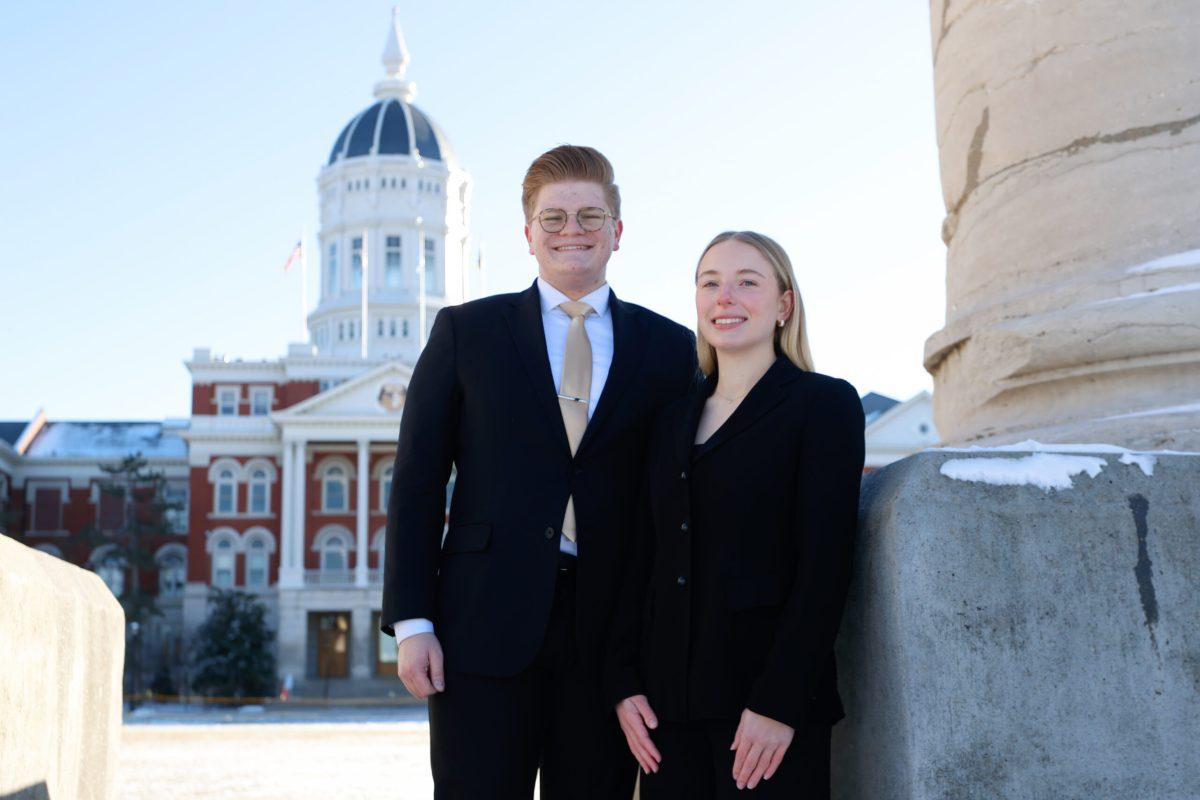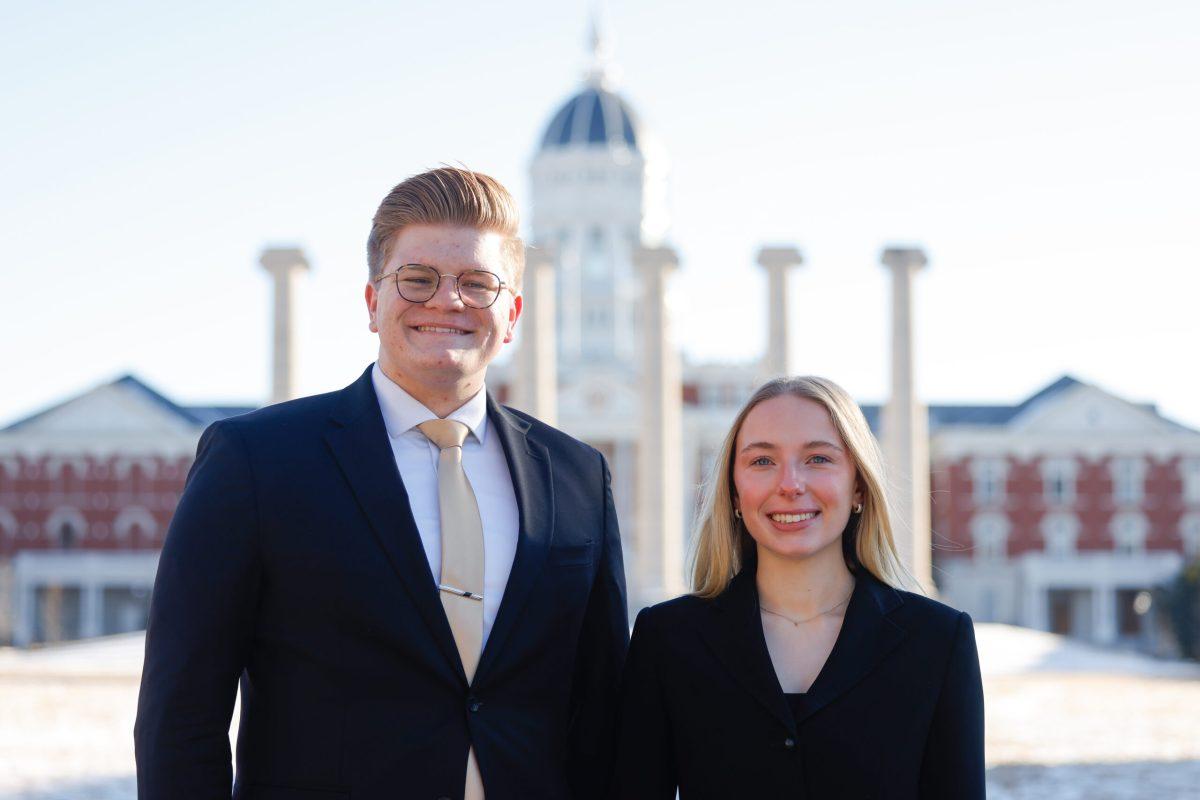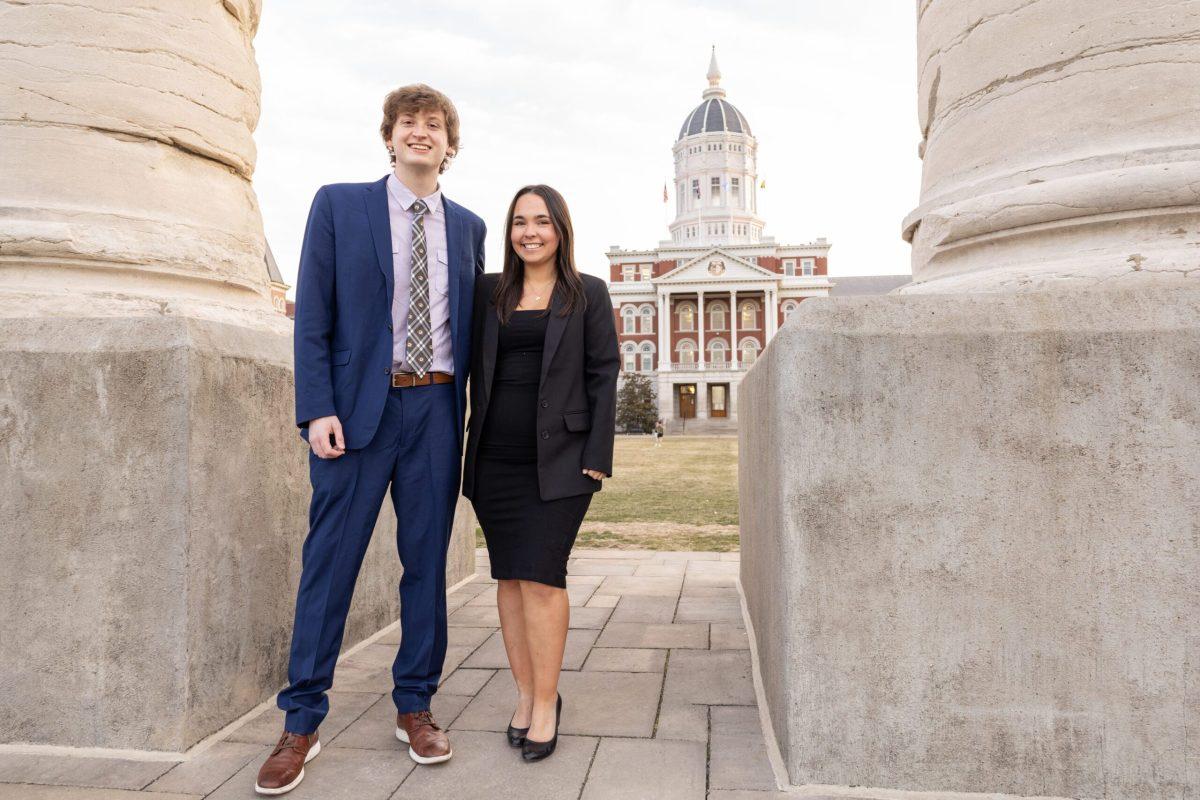Abolitionists @ Mizzou, a student group advocating for the abolition of the MUPD, protested Oct. 30 outside of the department’s headquarters.
About 10 protesters gathered at 3 p.m. and stayed until around 4 p.m. They chanted that MUPD should be abolished and UM System President and MU Chancellor Mun Choi should step down from office. They also carried signs that said “Black Lives Matter,” “Abolish MUPD” and “We Stand with Mizzou 600,” referring to the group that protested for racial justice in Jesse Hall in early October.
MU sophomore Noah Wright (who is a member of The Maneater staff) organized the protest and runs the Abolitionists @ Mizzou Twitter account. Wright said they disagree with the concept of policing and feel MUPD does not serve or protect the campus community.
“We’re protesting MUPD just as it exists,” Wright said. “We think it’s wasteful and a waste of university funds and does not keep us safe … I think looking at the recent events that have been happening in this country, we can just see that police serve to criminalize poverty and mental health problems and not make them better in any way.”
Wright said they discovered that most of the issues MUPD handles are drug and alcohol-related. They said health care professionals should deal with these issues instead of police officers.
“I think that what they’re doing isn’t actually helping solve those problems because there’s a lot of drug and alcohol problems in Columbia,” Wright said. “In order to solve those problems, it’d be wiser to invest in mental health services and things like that than in a wasteful police force.”
Wright said the group also wants to disassemble the Columbia Police Department but is focusing on MUPD for now because students have a greater influence over it.
Abolitionists @ Mizzou’s Twitter account lays out a list of seven demands. The first one is the abolition of MUPD. The group also demands that MU address its racist past by removing the Thomas Jefferson statue and obelisk from Francis Quadrangle.
Wright said MU should not honor a slaveholder and rapist with a statue.
“Thomas Jefferson owned people and is also a sexual predator, and I just think that that’s a bad thing for Mizzou honoring in that way,” Wright said.
UM spokesperson Christian Basi said the university does not plan to give in to the demands. He said MU will not abolish MUPD, remove Jefferson’s statue or fire Choi. Basi said he would prefer disgruntled students to present their grievances with conversations instead of demands.
MUPD did not respond to requests for comment.
Two MUPD officers showed up to the protest, as did Michelle Froese, MU’s associate dean of students. The protest doubled as a canned food drive for Tiger Pantry, and Froese donated some cans of her own. She also passed out pamphlets to the protesters detailing MU’s policies on public gatherings.
Basi said Froese was representing vice chancellor Bill Stackman, and that administration officials showing up to protests is “a pretty typical situation.” Stackman did so at the Mizzou 600 protest in early October, Basi said.
“We wanted to make sure that the individuals who were expressing their opinion understood our various policies that we have on campus that might pertain to their event,” Basi said.
Stackman sent an email to MU students at 1:08 p.m. on the same day as the protest explaining MU’s policies on freedom of expression. Basi said the timing of this email was coincidental. As for the policies’ content, Basi said they say protesting students can freely express themselves as long as they respect the university’s “time, place and manner” rules. He said these rules extend beyond protests, too.
Laura Beltz, the senior program officer of policy reform at the Foundation for Individual Rights in Education, said universities can put time, place and manner rules in place and can generally enforce them more strictly indoors than outdoors. She said the enforcement must be “viewpoint-neutral” and “applied even-handedly.”
“For example,” Beltz said, “it would be impermissible for the university to shut down amplified speech that is criticizing the university administration while allowing amplified sound that praises it.”
In early October, the Foundation for Individual Rights in Education ranked MU 13th in the nation for its free speech climate and eighth among public universities.
Basi said the Office of Student Accountability gave the Mizzou 600 protestors a warning because they violated the sound amplification rule. Wright said the warning constituted “a flagrant violation of students’ right to protest,” and they added that they believed the university gave the warning because many of the protesters were Black.
Wright is white, but they said MUPD, Jefferson’s statue and the administration’s policies against disruptive protest make it unsafe to be Black at MU.
“Black students having to stomach walking past an overpoliced campus like this every day, it doesn’t make it safe for anyone,” they said.
_Edited by Joy Mazur | [email protected]_





